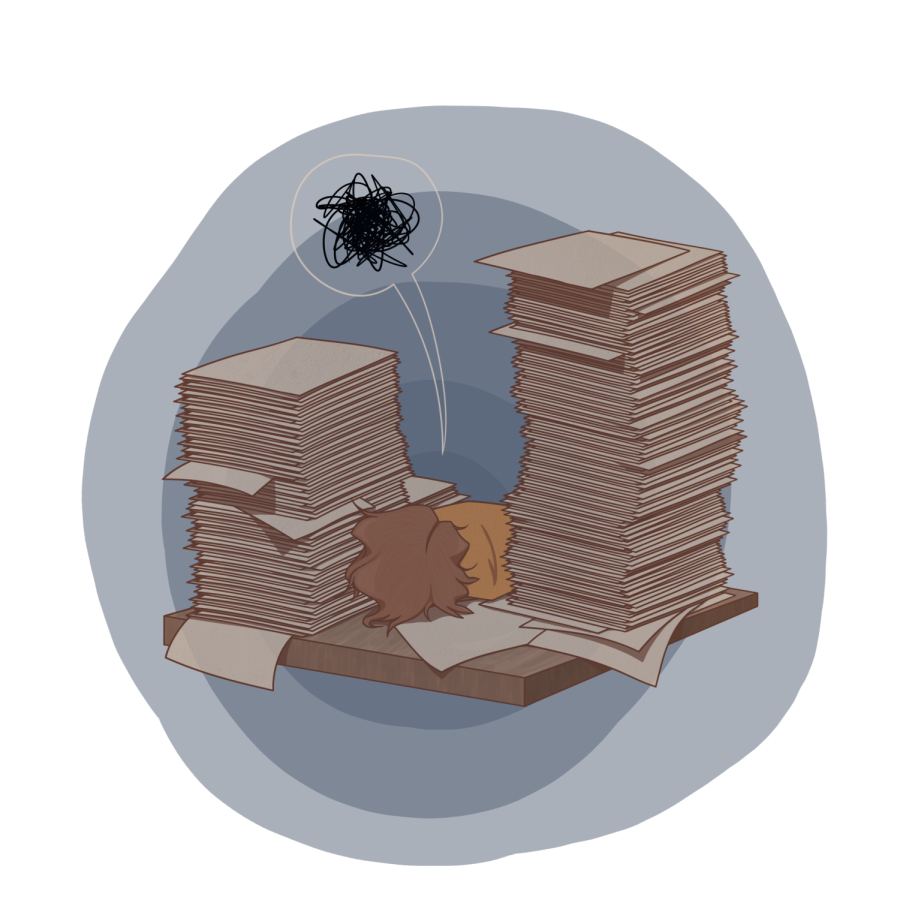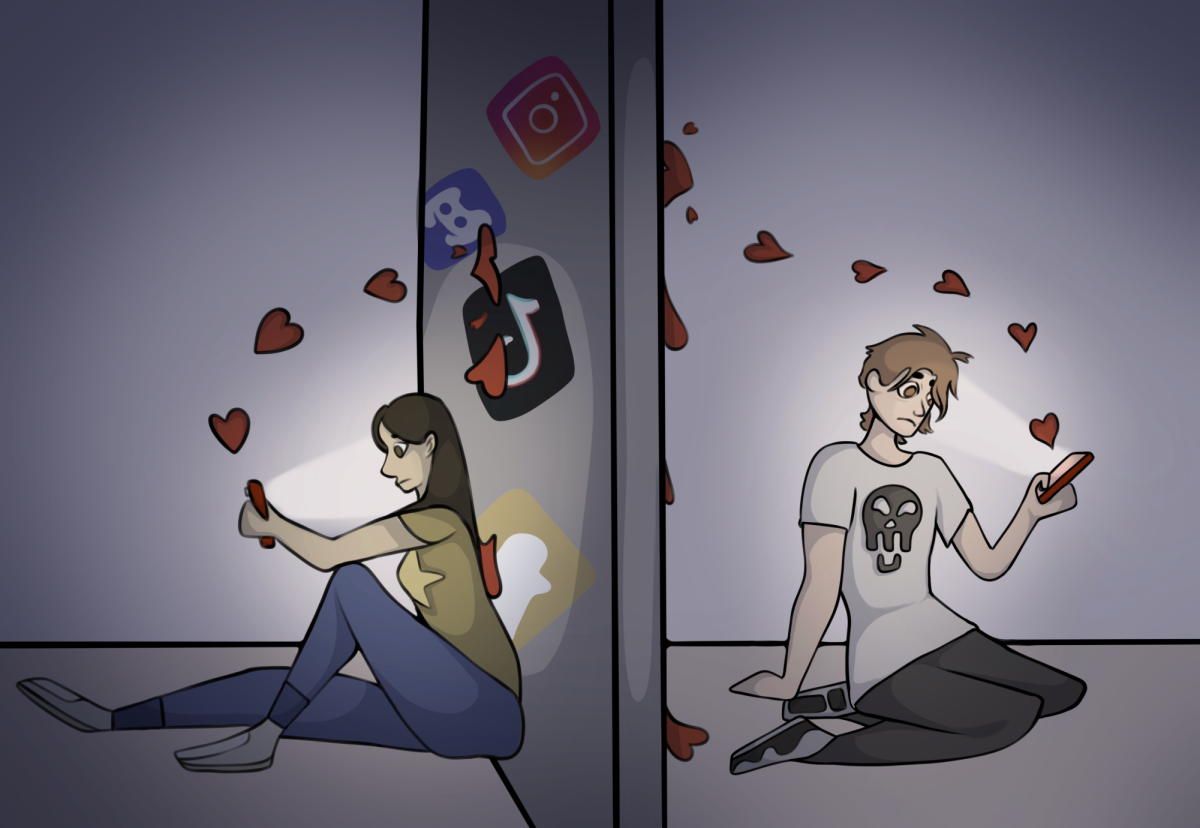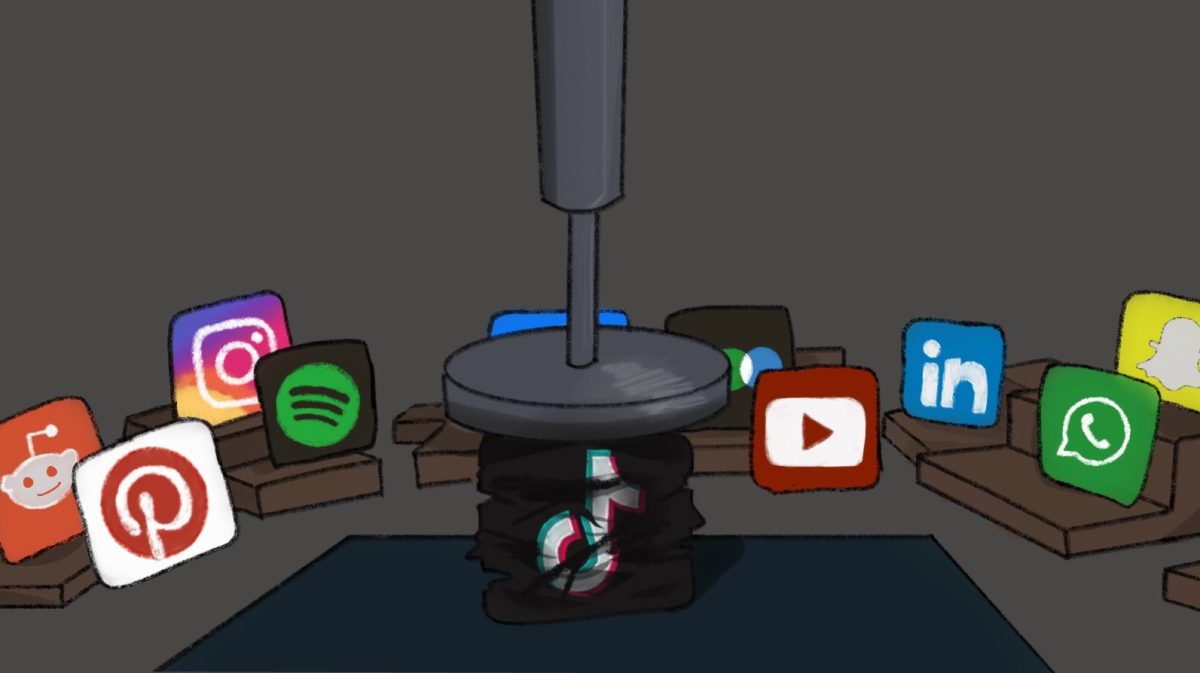Between balancing a social life, classwork and homework, exercise, and screen time, Fairfax County Public Schools (FCPS) has failed to adequately take students’ struggles into account, resulting in the deterioration of students’ mental health.
High schoolers attend school to learn and prepare for the real world, but its purpose is undermined when kids have no determination to do anything. Through online school, some students have become extremely unmotivated to learn, resulting in mental blocks, inefficiency, and depression.
“During the summer, I have little to no stress, and I have more time to focus on myself, which makes me feel better,” junior Reese Smith said. “[Compared to in-person school, online] school gives me a lot of stress and anxiety, which lowers my mental health by a lot, and it leaves me feeling drained.”
Another source of stress is rejection and competition. Over time, colleges have become more competitive and difficult to get into, leading to more stress and anxiety among students. And in the virtual setting, knowing a final test could determine whether or not your GPA is high enough for a certain school is very stressful and tiring.
“I’m just anxious about my grades and not actually learning the information,” junior Simal Mann said. “Yes, I want to learn, but the grades given are what get you to the next big step.”
The stress of competition is not the only factor that is contributing to a decline in some students’ mental health. FCPS has gradually acknowledged that students’ mental health is much worse now than it was during in-person school. Sitting on a screen all day, with all the possible distractions around you and taking in similar information every day has proven to be exhausting and draining, but the school district has barely added even minimal resources to help this.
“I think we still get a lot of work, but some of my teachers have been more lenient with timing on tests to make sure all of our work submitted considering we’re online,” Mann said.
A change in many teachers’ instruction styles has led to less effective assignments, called “busy work.” As students become unmotivated, many are not taking the extra time to properly absorb the material their assignments attempt to teach them, resulting in even more stress over grades. FCPS has not addressed the increase in this type of work.
Teachers and students don’t always see eye-to-eye on issues like class workloads and busy work. Yet many students like Mann believe that if teachers and schools focused on the learning portion of school, rather than homework and class time meant to fill the county’s grading requirements, then students’ mental health would be better. Others disagree that FCPS is not encouraging learning.
“I believe our school system does focus on learning,” counselor Carol Forrest said.“ Grades and test scores are part of school. Most teachers are eager to share knowledge with students and to help them learn to think critically. I believe that toxic stress contributes to mental health difficulties. The answer is not to eliminate stress – that is not realistic. Rather, the answer is to find a balance in which students are engaged as learners.”
Although FCPS’ and teachers’ goals remain to help students learn, their resistance to adaptation and citation of traditional school years highlights the lack of action needed to improve students’ day-to-day lives.
If FCPS wants to take the success of its students seriously, it must be more receptive and understanding of their struggles in the online environment and act more decisively on key issues in the virtual classroom.
Categories:
FCPS should do more to help students
When school work starts ramping up, so does the stress for many students. Their headspace, environment, and organization worsen, causing a drop in performance.
Donate to The Highlander
$310
$1000
Contributed
Our Goal
Your donation supports the McLean High School's independent, award-winning news publication.









